Drawing and Shading Anime Hair Tutorial
Hair is one of my top 5 favorite things to draw and color, and this was also a very requested tutorial. I tried to add as much information as possible while keeping the video fun to watch and full of tips!
Nothing here is a hard rule, and it's mostly to show how I do things, so I hope you enjoy it 🙂
Using references
It's tough to draw things when you don't check what they look like in real life. So every time you're stuck, search for photos! Not just of anime drawings, but actual people as well.
Where, you ask? There're plenty of places; you can go on Pinterest, Instagram, DeviantArt, etc.! And if you think that's cheating, copying, or stealing, it's not. Every great artist uses references, so you should too!
Shape and volume
Hair and eyes in anime are often used to express emotions and a character's personality, so they're usually given more details than in real life. But this is drawing, so there aren't any complex rules for this! Let your hand flow, and practice your creativity. Take a look at your favorite anime drawings. How does the hair make you feel?
Straight black hair feels serious;
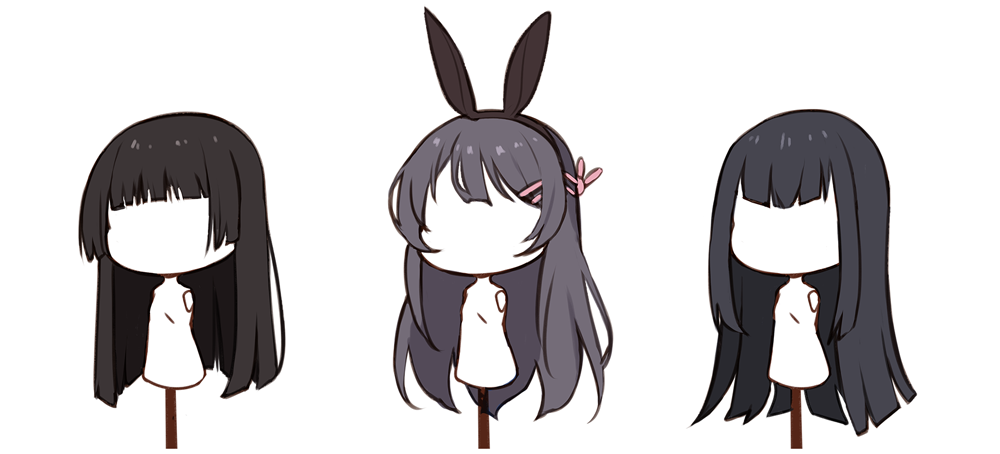
while fluffy curls are warm and welcoming!
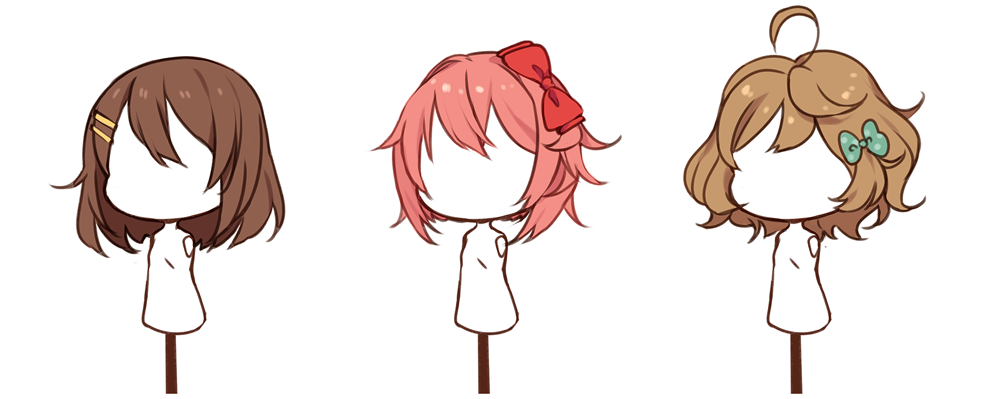
Sketching tips
I start hair just thinking of the general outline without giving much attention to details: when sketching, only the general shape matters.
If you don't know where the hair starts in the head, think of the skull, and add some padding. A simple line in the middle should be enough to represent that. You can make the top part more complex as you learn how hair works.
Also, it's good to work with S curves. Even if the hair is straight, it can be a long open S, making the hair look light and flowy. With wavy hair, the S curves will be more visible!
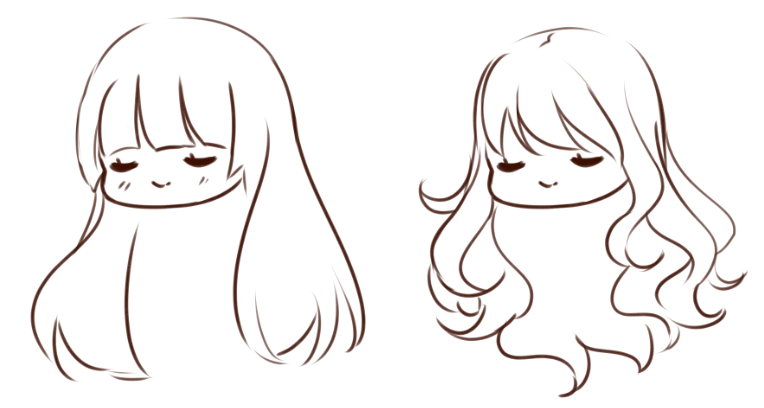
For perfectly curly hair, I use a different technique. I first draw a spring and define the front part. Then, I duplicate that line shape.
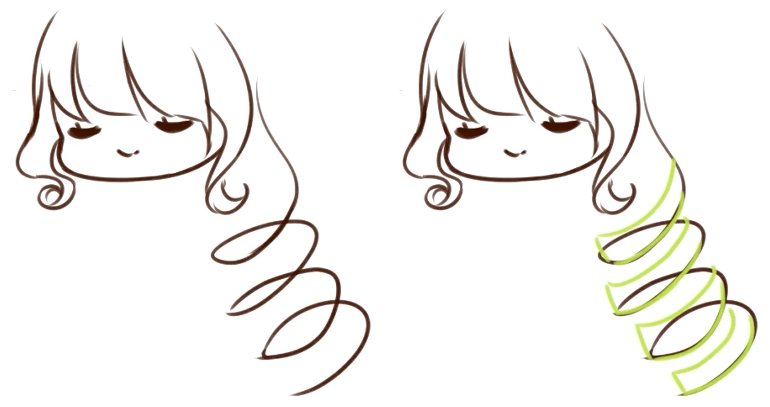
After that, I erase the lines that are on the back and connect them to form a full spring!
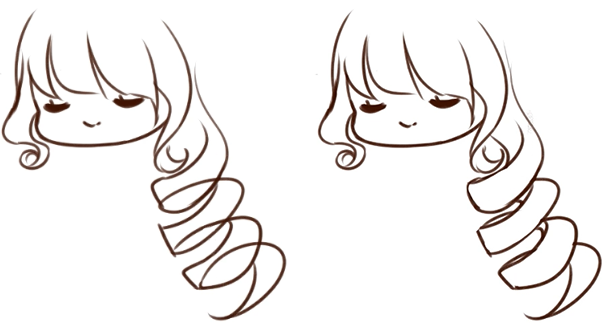
You don't need to draw every strand like that (feel free to do so if you like though!), a few will be enough to give the feeling you are looking for, and the back can just have a simple shape.
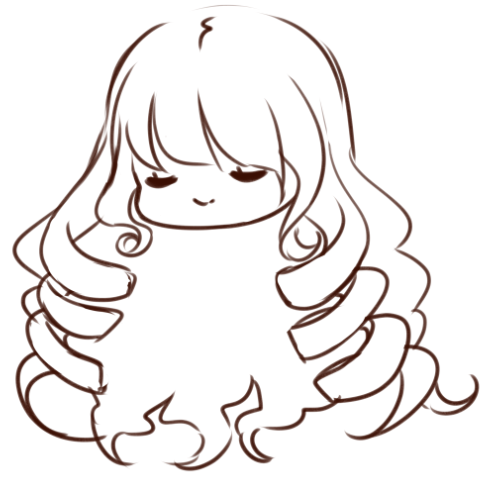
Don't be afraid to delete what looks wrong and try again. Even if it takes time, spending time on this part to get the feeling right will pay off in the end.
Another important tip is to work with long lines, not short chicken scratches. It will make your drawing look more polished, and you will have fewer chances to hurt your wrist!
Take breaks if you are lost, and look up new references to refresh your eyes. Make sure to leave them open while you draw; it will help a lot.
About lineart
Depending on the drawing, I will clean up the sketch instead of creating lineart.
By "clean up", I mean I will erase the messy lines and go over them when necessary, giving it a different feeling than a perfectly clean line. I feel this helps me relax about art and not worry too much about details.
You don't need to over-zoom and glue your face on the screen to be sure the lines are perfect! To be quite honest, you are likely to be the only one that will be able to spot your small mistakes.
The brush for lineart can be the same as for sketching, but this will depend on how you want it to look. I highly recommend looking at the standard brushes or checking Clip Studio Assets. There are many fun brushes you can easily download and use.
In this phase, you can make the lines thicker where they intersect or where shadows will be. It will give your lines more depth.
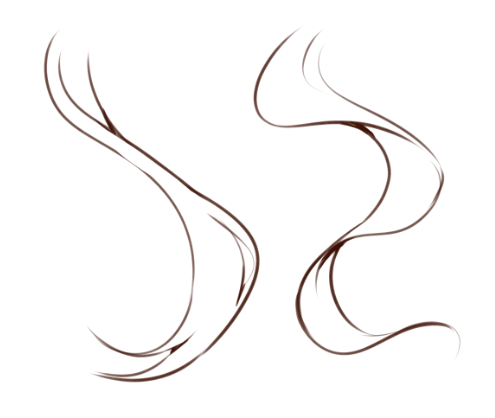
Shading
Once you have the base color added, define where your light source is. Remember your basic lessons about ball shading? Do exactly that.
To do this, lay out a general shape with the shading color.
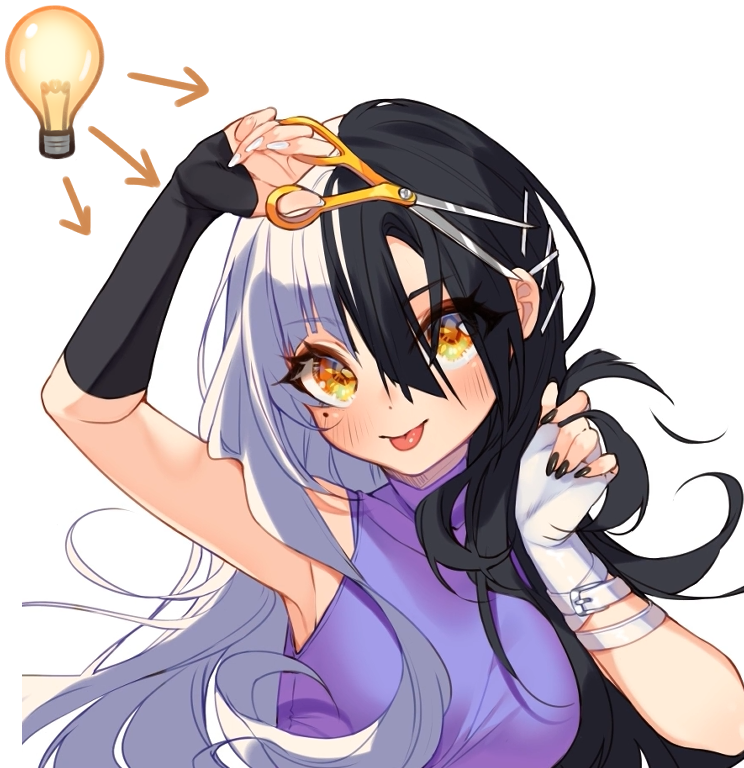
Once you have the general shape defined, you can polish it until your liking.
But as you are still learning, you don't need to go fancy on the shading. Go slowly, within the scope of what you feel is challenging enough for your current skills, then make it complex as you go!
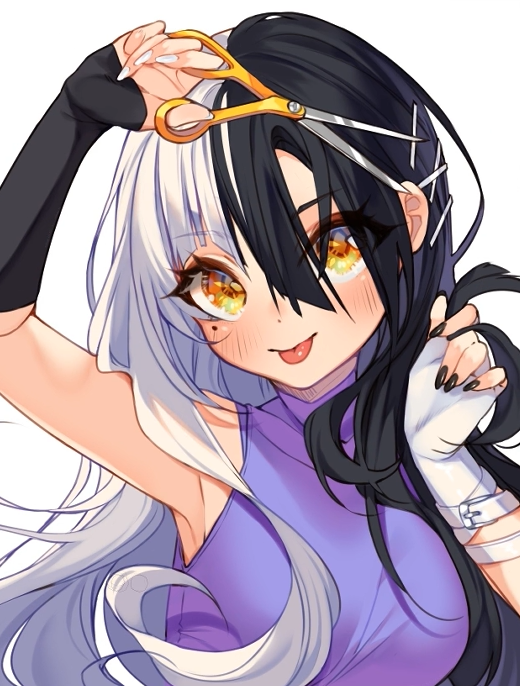
As you can see, there's some kind of backlight on the black that matches the grey on the white side. I usually add some extra color to the hair I draw, because it looks pretty!
Now, how to pick the right color?
Short answer, there is no right color! Play with them until you find what you like: try pink in blue, purple in green, orange in yellow, and so on. Have fun! Wonder how to make black and white hair not look grey, purple, etc.
If you use similar colors to your drawing's surroundings, the tone will look correct. For example, if her shirt were red, I would add more red tones to the hair. I tend to use colors already on the drawing and playing around with them. Like this hair strand in a blue and red room: there's a bit of each color on it.
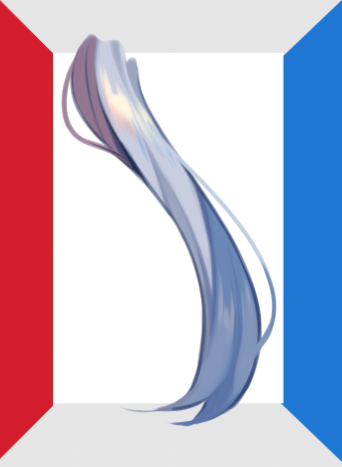
But if you are working with complicated hair like a rainbow or gradient, you can set a new layer on top in Multiply blending mode, and test out which colors work better without messing up the gradient.
Highlights
This part is very fun, and there are many ways to add shine to the hair.
Yes, even white hair!
I like to airbrush the skin color on the bangs, so when I add white highlights on top, it will show!
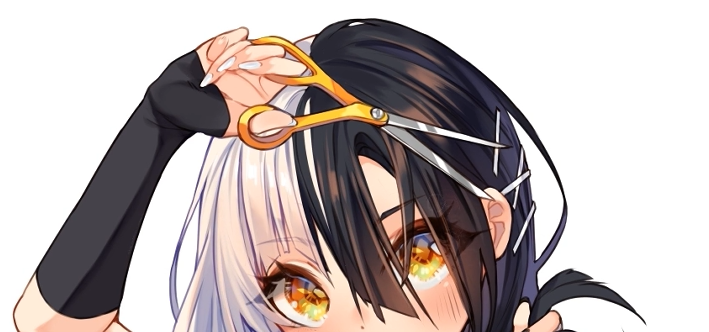
If you don't know which color to use, you can take the hair color, create a new layer, set the blending mode to Add (Glow), and then add blobs, triangles, lines, etc. Any shape works, so do what fits your taste, and then use hue and saturation (Ctrl+U) to change the color to a tone that matches.
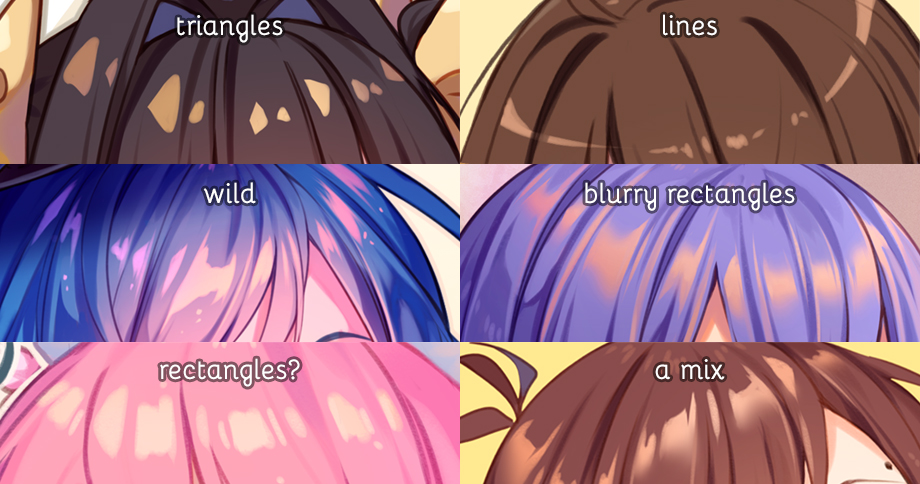
When I add highlights, that's when I also add messy strands. We all struggle with messy hair, right?
Another little thing I enjoy is making the eyelashes and eyebrows transparent. You can easily do that by locking the lineart layer, and then coloring with a color that's darker than the hair, or lighter. Try it out; it depends on the hair color you are using, and if your lineart is set as multiply or not.
Conclusion
Maybe you're still unsure how to draw hair even after this tutorial, but I don't expect you to suddenly be a pro. As I always say, art takes time.
So at the very least, take away this important point from this: use references! I can't repeat this enough but make sure to use them mindfully.
I believe you don't actually need a step-by-step to learn something. Instead, try to understand things in your own way. As long as you enjoy what you do and are up for the challenges life will bring, you will grow as an artist!
Practicing is key, but patience and passion make up the door.
Thank you very much for checking it out!
Have a good time drawing ☆ ~('▽^人)
– Hyanna Natsu
YouTube Channel
Drawing and Shading Anime Hair Tutorial
Source: https://www.clipstudio.net/how-to-draw/archives/161517
0 Response to "Drawing and Shading Anime Hair Tutorial"
Postar um comentário